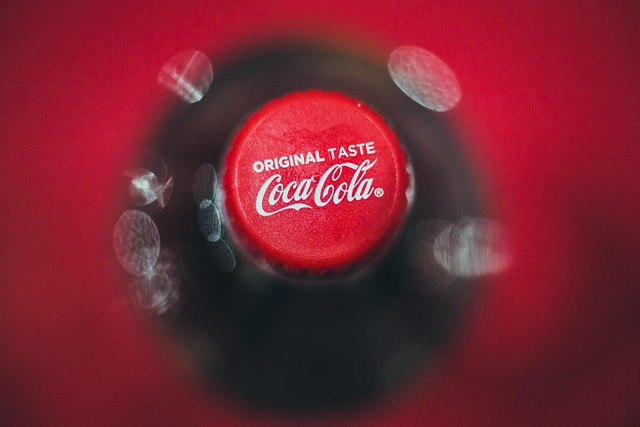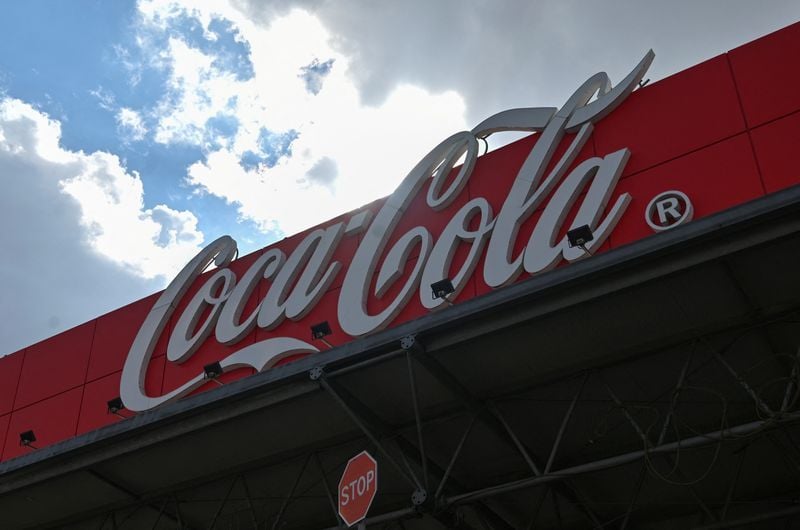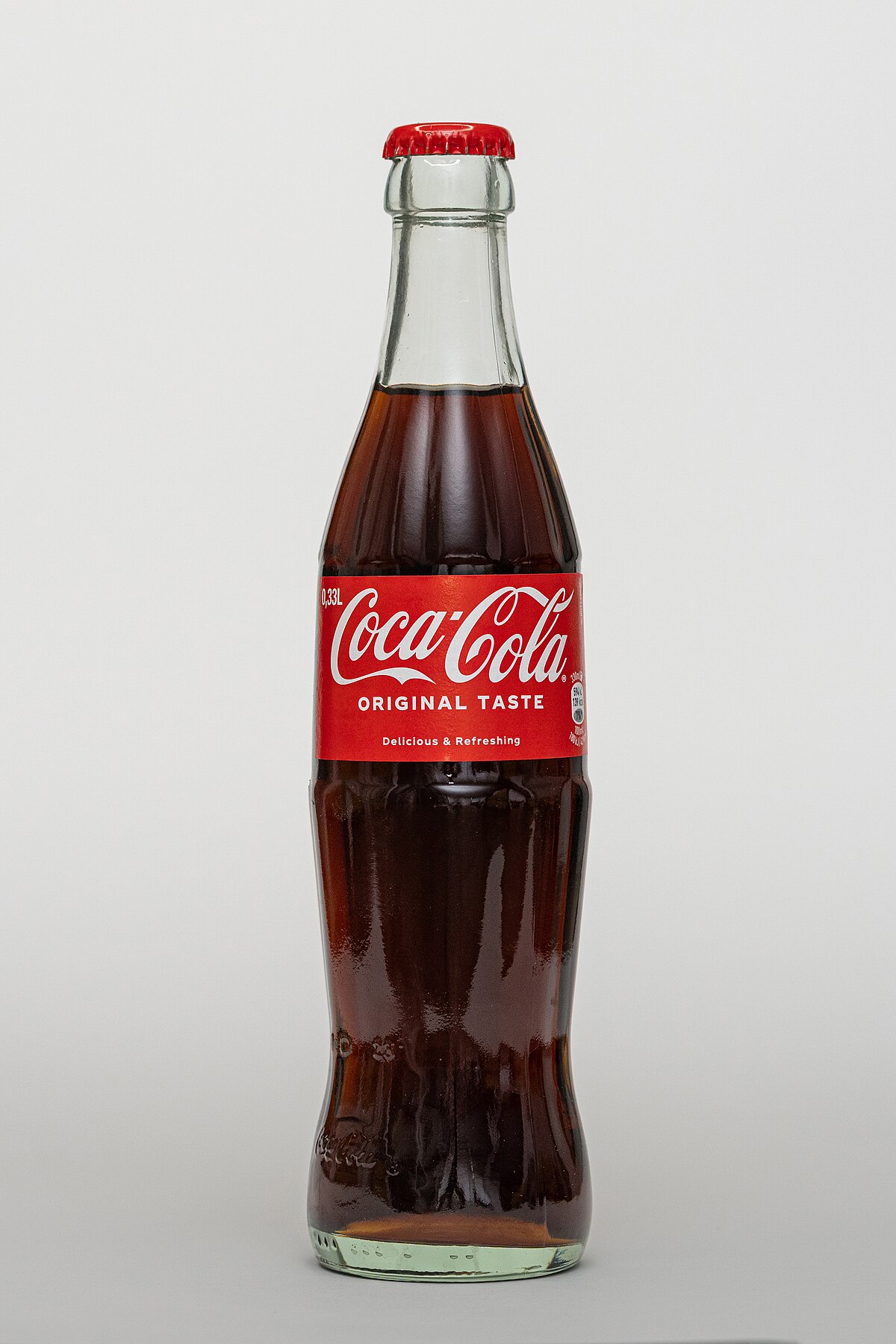Coca-Cola Announces Leadership Changes and Financial Health

The Coca-Cola Company's Leadership and Operational Excellence
The Coca-Cola Company (KO:NYSE) has recently announced a series of significant corporate changes and financial updates that reflect its ongoing commitment to leadership and operational excellence. Among these changes, Brenda Hofmann's election as the new Senior Vice President and Chief of Internal Audit marks a significant transition in the company's audit department. Hofmann, with her extensive experience within Coca-Cola since 1994, is set to bring a wealth of knowledge in finance, procurement, and general management to her new role. This leadership change comes as Barry Ballow retires after a commendable 34-year career, highlighting Coca-Cola's dedication to maintaining a strong and experienced leadership team.
In addition to Hofmann's appointment, Coca-Cola has made strategic moves in its supply chain and information security departments. Leonardo Zei's new role as Vice President and Head of Strategic Ingredient Supply is crucial for the company's supply chain sourcing activities, especially for flavor and non-agricultural ingredients. This position is vital for Coca-Cola's global operations, ensuring the company continues to meet its high standards for product quality and sustainability. Similarly, Derek Benz's election as Senior Vice President while continuing as Chief Information Security Officer underscores the importance of cybersecurity in today's digital age. Benz's nearly three decades of experience in the cybersecurity industry are invaluable to protecting the company's information assets.
Ellie May's appointment as Chief Accounting Officer, in addition to her role as Senior Vice President and Controller, further strengthens Coca-Cola's financial leadership. May's extensive background as an audit partner at Ernst & Young LLP for over 20 years equips her with the expertise necessary to oversee Coca-Cola's accounting practices and financial integrity. These leadership changes are complemented by Coca-Cola's declaration of a regular quarterly dividend of 48.5 cents per common share, demonstrating the company's financial health and commitment to returning value to shareholders.
The backdrop of these corporate and financial updates is Coca-Cola's solid performance in the stock market. The company's stock price recently reached $62.17, reflecting a modest increase and showcasing the market's positive reception to Coca-Cola's strategic decisions and leadership appointments. With a market capitalization of about $268.03 billion and a trading volume of 10.97 million shares, Coca-Cola continues to be a dominant player in the global beverage industry. This financial stability and market confidence are crucial as Coca-Cola navigates the complexities of the global market, aiming to refresh the world and make a difference through its sustainable practices and community contributions.
| Symbol | Price | %chg |
|---|---|---|
| KO.BA | 20820 | 0.91 |
| PEP.BA | 12330 | 1.38 |
| CLEO.JK | 515 | -0.97 |
| ADES.JK | 13350 | -1.12 |

The Coca-Cola Company (NYSE:KO): A Leader in the Beverage Industry with Strategic Growth Prospects
- The consensus price target for Coca-Cola has slightly increased, indicating analysts' confidence in its growth prospects.
- Analysts predict earnings per share of 83 cents and revenue of $12.54 billion for the upcoming second-quarter earnings announcement.
- The potential switch to cane sugar in U.S. products could lead to higher consumer prices and impact corn farmers, but also offers a premium product line opportunity.
The Coca-Cola Company (NYSE:KO) is a global leader in the beverage industry, known for its extensive range of nonalcoholic beverages. Founded in 1886, Coca-Cola's iconic brands include Coca-Cola, Diet Coke, and Sprite. The company operates through a vast network of bottling partners and distributors, maintaining a strong market presence worldwide.
The consensus price target for Coca-Cola's stock has shown stability, with a slight increase from $74.2 last year to $76 recently. This reflects analysts' confidence in Coca-Cola's performance and growth prospects. Despite this, analyst Vivien Azer from Cowen & Co. has set a lower price target of $68, indicating a more cautious outlook.
Coca-Cola is set to announce its second-quarter earnings, with analysts predicting earnings per share of 83 cents and revenue of $12.54 billion. Historically, Coca-Cola stock has shown positive one-day returns following earnings announcements in 72% of cases over the past five years. This trend could influence investor sentiment and market dynamics.
Coca-Cola's potential switch from high-fructose corn syrup to cane sugar in its U.S. products could have significant economic implications. The cost of cane sugar is notably higher, which may lead to increased consumer prices. This change could also impact corn farmers, as corn is a major crop in the U.S., with potential revenue losses for farms.
Arun Sundaram from CFRA Research suggests that Coca-Cola might introduce a new product line featuring cane sugar, rather than replacing existing products. This new variant would likely be priced at a premium due to the higher cost of natural ingredients and challenges in increasing U.S. production or imports of cane sugar.

RBC Reaffirms Outperform on Coca-Cola, Expects Strong Quarter
RBC Capital reiterated its Outperform rating and $76 price target on Coca-Cola (NYSE:KO), highlighting the company’s solid global fundamentals and ability to navigate a challenging macroeconomic environment.
The firm expects Coca-Cola to deliver a strong quarter, with robust organic growth both in the U.S. and abroad, particularly in Latin America and EMEA regions. Despite global volatility, Coca-Cola’s pricing power, revenue growth management strategies, and cost-saving initiatives are seen as effective tools to maintain momentum and meet full-year targets.
RBC also noted that improving foreign exchange conditions could help offset some of the tariff-related headwinds impacting the broader consumer sector. With diversified operations and a proven playbook for managing through economic cycles, Coca-Cola remains well-positioned to continue executing on its growth strategy.

Coca-Cola (NYSE:KO) Price Target and Earnings Preview
- Nik Modi from RBC Capital sets a price target of $76 for Coca-Cola (NYSE:KO), indicating a potential upside of 7.9%.
- Analysts expect Coca-Cola to report earnings of $0.84 per share on revenues of $12.55 billion, marking a year-over-year increase.
- Coca-Cola's stock price has seen a slight increase, currently at $70.40, with a dividend yield of 2.92%.
Coca-Cola (NYSE:KO) is a global leader in the beverage industry, known for its iconic soft drinks and a diverse portfolio of brands. As of July 21, 2025, Nik Modi from RBC Capital set a price target of $76 for KO, suggesting a potential upside of 7.9% from its current trading price of $70.44. This price target comes ahead of Coca-Cola's anticipated earnings release.
Coca-Cola is set to announce its earnings on July 22, 2025, amid a busy earnings season where 20% of S&P 500 companies are reporting. Analysts expect Coca-Cola to report earnings of $0.84 per share on revenues of $12.55 billion, slightly up from $12.31 billion a year ago. Historically, Coca-Cola has shown positive one-day returns post-earnings, with a 72% occurrence rate over the past five years.
The broader market context shows tech stocks leading gains, with the Nasdaq Composite up 1.5% and the S&P 500 rising 0.6%. Despite this positive sentiment, investors remain cautious due to an upcoming tariff deadline. Coca-Cola's earnings growth is projected at 5.6%, marking the eighth consecutive quarter of growth, albeit the lowest since Q4 2023.
Coca-Cola's stock price has seen a slight increase, currently at $70.40, with a market cap of approximately $303 billion. The stock has fluctuated between $69.93 and $70.62 during the trading day. Investors are also eyeing Coca-Cola's dividend yield of 2.92%, with an annual dividend of $2.04 per share, appealing to those seeking steady income.
In recent developments, Coca-Cola appointed Luisa Ortega as the president of its Europe operating unit, effective September 1, 2025. She will succeed Nikos Koumettis, who plans to retire in 2026. This leadership change is part of Coca-Cola's ongoing strategy to strengthen its global operations and maintain its competitive edge in the beverage market.

Coca-Cola Edges Past Q1 Profit Estimates, Reaffirms Growth Outlook
Coca-Cola (NYSE:KO) delivered a modest first-quarter beat on earnings but came in slightly below revenue expectations.
The beverage giant reported adjusted earnings of $0.73 per share, just ahead of the $0.72 analyst consensus. Revenue totaled $11.1 billion, narrowly missing forecasts of $11.2 billion.
Organic revenue grew 6% year-over-year, fueled by a 5% rise in pricing and product mix, along with a 1% gain in concentrate sales. Unit case volume rose 2%, with India, China, and Brazil driving much of the growth.
Profitability improved meaningfully, with operating margin expanding to 32.9% from 18.9% a year earlier. On a comparable basis, operating margin rose to 33.8%, helped by strong revenue execution, disciplined cost management, and the timing of marketing investments.
For the full year 2025, Coca-Cola reaffirmed its organic revenue growth target of 5% to 6%. However, the company expects a 5% to 6% currency-related drag on earnings and now forecasts comparable EPS growth of 2% to 3%.

Coca-Cola Edges Past Q1 Profit Estimates, Reaffirms Growth Outlook
Coca-Cola (NYSE:KO) delivered a modest first-quarter beat on earnings but came in slightly below revenue expectations.
The beverage giant reported adjusted earnings of $0.73 per share, just ahead of the $0.72 analyst consensus. Revenue totaled $11.1 billion, narrowly missing forecasts of $11.2 billion.
Organic revenue grew 6% year-over-year, fueled by a 5% rise in pricing and product mix, along with a 1% gain in concentrate sales. Unit case volume rose 2%, with India, China, and Brazil driving much of the growth.
Profitability improved meaningfully, with operating margin expanding to 32.9% from 18.9% a year earlier. On a comparable basis, operating margin rose to 33.8%, helped by strong revenue execution, disciplined cost management, and the timing of marketing investments.
For the full year 2025, Coca-Cola reaffirmed its organic revenue growth target of 5% to 6%. However, the company expects a 5% to 6% currency-related drag on earnings and now forecasts comparable EPS growth of 2% to 3%.

Coca-Cola Gets a Boost from Weaker Dollar and fairlife Momentum, Says CFRA
CFRA raised its 12-month price target on Coca-Cola (NYSE:KO) to $80 from $68, maintaining a Buy rating as favorable currency dynamics and domestic brand strength position the beverage giant for upside.
While earnings estimates remain unchanged, CFRA sees the recent decline in the U.S. dollar as a significant catalyst for Coca-Cola’s bottom line. With 61% of its revenue generated outside the U.S., a weaker dollar improves international profitability when converted back into U.S. dollars. In 2024, U.S. revenue grew 11% year-over-year, while international sales dipped 2%, highlighting domestic resilience.
The firm also points to Coca-Cola’s fairlife brand as a key, underappreciated growth engine. Annual sales have already surpassed $1 billion, and expansion is set to accelerate with the completion of a $650 million production facility in New York later this year.
Despite ongoing debates around health-related policy shifts and tariff risks, CFRA believes those concerns are already priced in. With a healthy dividend yield supporting long-term returns, Coca-Cola is seen as a solid opportunity for investors seeking both growth and income.

Coca-Cola Gets a Boost from Weaker Dollar and fairlife Momentum, Says CFRA
CFRA raised its 12-month price target on Coca-Cola (NYSE:KO) to $80 from $68, maintaining a Buy rating as favorable currency dynamics and domestic brand strength position the beverage giant for upside.
While earnings estimates remain unchanged, CFRA sees the recent decline in the U.S. dollar as a significant catalyst for Coca-Cola’s bottom line. With 61% of its revenue generated outside the U.S., a weaker dollar improves international profitability when converted back into U.S. dollars. In 2024, U.S. revenue grew 11% year-over-year, while international sales dipped 2%, highlighting domestic resilience.
The firm also points to Coca-Cola’s fairlife brand as a key, underappreciated growth engine. Annual sales have already surpassed $1 billion, and expansion is set to accelerate with the completion of a $650 million production facility in New York later this year.
Despite ongoing debates around health-related policy shifts and tariff risks, CFRA believes those concerns are already priced in. With a healthy dividend yield supporting long-term returns, Coca-Cola is seen as a solid opportunity for investors seeking both growth and income.







